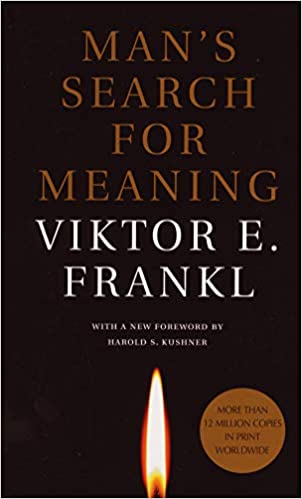Book Review: Man’s Search for Meaning: Still Relevant After 75 Years?
Frankl’s Logotherapy philosophy sold millions of copies years ago, and continues to thrive.

By: Carlin Lacques
There are thousands of holocaust-related books, and even more psychology and philosophy ones, but Man’s Search for Meaning stands out.
As a blend of a personal account and an explanation of logotherapy, there’s truly something to meet anyone’s preferences.
Frankl details his personal experiences within concentration camps, and more specifically, how he survived them.
The Logotherapy philosophy emphasizes the need for meaning, purpose, something which tells the sufferer it was not all in vain.
Frankl’s purpose which inspired perseverance in the camps was his manuscript. From day 1 under Nazi order, he was desperate to hold onto his manuscript, and when he eventually lost it, he continuously wrote bits and pieces of what he could recall in order to eventually piece them back together once he got out.
That’s the key to Frankl’s survival– a reason to escape, a thought of what could exist on the other side.
While Frankl’s situation was the most extreme of any, he encourages the reader to apply these techniques to their own struggles, and discusses how he did this with patients.
To apply Frankl’s philosophy, all one has to do is find what makes them feel everything is worthwhile. The focus is relief, what makes suffering feel worth it? What end goal is worthy of all of your efforts?
One critique of the book is the attempted blending of his personal account and logotherapy. The two subjects could have easily made two separate works, though it’s understandable to see how they affect each other, and why Frankl may have thought it important for the reader to understand them together.
It really is relative to the preference of the reader in terms of whether the two sections should have been together or not. Either way, Frankl is relatively smooth in transition.
Man’s Search for Meaning is typically assigned to AP English Language and Composition students at Tuscarora, which is a little unique. Most high school English classes stick to the classics, i.e. Of Mice and Men, The Scarlet Letter, etc.
Man’s Search for Meaning is a philosophy book rather than an autobiography at its core. This can be beneficial to high school students, and potentially open their world to a new genre they wouldn’t explore on their own.
While Frankl’s love letter to logotherapy is many years in age, it is still being used as a unique tool to inform students.
After so much time, one would think the flame of this story would have fizzled out, but with a topic so perpetually relevant, Frankl’s arguably greatest work continues to thrive and is read by thousands of readers today.
According to a survey conducted by the Library of Congress, Man’s Search for Meaning belongs to a list of the “Ten Most Influential Books of the United States.”
Based on these considerations, this book has earned four out of five stars. It only did not earn the fifth star because I feel it didn’t quite carry the ‘wow’ factor required to warrant a five on the five star scale.
Frankl wrote a work which has greater staying power than many novels of the modern era, though its overflowing content made the book feel as though if he had the chance, Frankl could have written even more about either topic.
Carlin is a staff writer for The Pack and in 11th grade. She plays softball for Tuscarora and is active in Model U.N., Academic Team, Young Democrats,...













